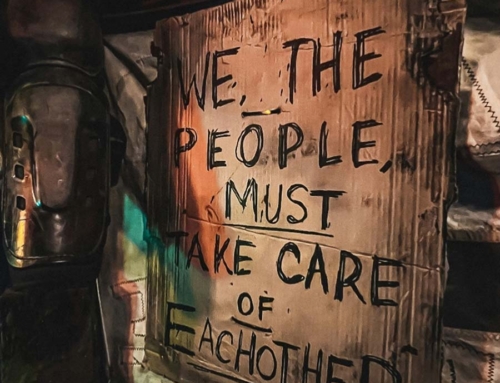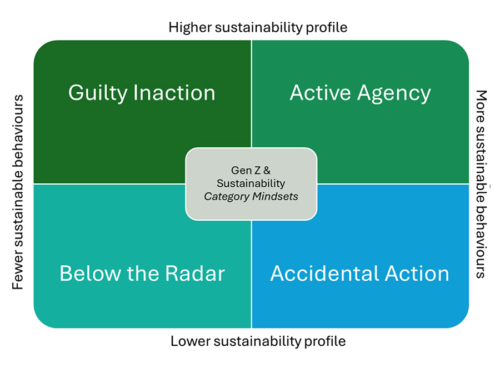
Our Gen Z participants use the term 'sustainability' to include a broad variety of issues that start 'green' topics but go far further. For them sustainability encompasses social ethics, health and wellness, longevity of goods and energy usage as well as environmental matters.
For example, Ruby – a 23 year-old personal trainer from Manchester – expressed her interest in both the regulation of both social ethics and environmental impact, describing her vision of a 'sustainability threshold':
"I think the government should have [regulations] in place for [how ethical] working conditions are, and also that businesses need to hit a certain amount of recyclable materials- a kind of sustainability threshold they have to meet"
Growing up in a world of increasing climate and resource insecurity, sustainability is an integral part of this generation's daily reality; it's a topic they think, see, discuss, or read about in some form or another every day. So perhaps it's unsurprising that our young participants expressed a broad, nuanced and well-informed understanding of sustainability. It's a term they seem familiar and comfortable with, and which they fully hope and expect will shape business, brands and their personal consumption patterns.
So what can brands learn from this?
1.Address sustainability in the way that's right for your brand
The broad interpretation applied by Gen Z consumers means there are plenty of opportunities to tap into sustainability in a way that makes sense for your brand. It's no longer about fitting a singular model of sustainability, or simply 'going green'.
2.Partner with care
Charitable collaborations or donations risk being seen as "pointless" or 'greenwashing' by our Gen Z participants if they appear to contradict business practice. For example, if a business is believed to treat its workers badly, donating money to a homeless charity won't fly as a sustainable 'offset'. So, although partnerships can be very successful, they should complement your core business activity and not come across as a proxy for addressing any negative sustainability impact.
3.Be transparent about your journey
Gen Z can be quick to criticise brands which tap into sustainability in a superfluous or disingenuous way. Young audiences are looking for realistic, authentic and meaningful messages from brands; they do not expect change to happen overnight, but they do expect sustainable promises to align with core business impact and brand values.
4.Connected & proactive
Our participants were clear that sustainable changes are everyone's responsibility. There was an encouraging, and perhaps surprising, lack of blame or resentment expressed towards business or previous generations. In fact our Gen Z participants were relatively optimistic that the combined force of everyone pulling together across governments, businesses and consumers can bring about the changes we all need to see. They want to see and hear about how brands are being proactive on sustainability and accept not everything can be fixed at once or by just one organisation.
Want to know more about our Gen Z – Connected Lives research series? Get in touch with us at info@brand-legacy.com






